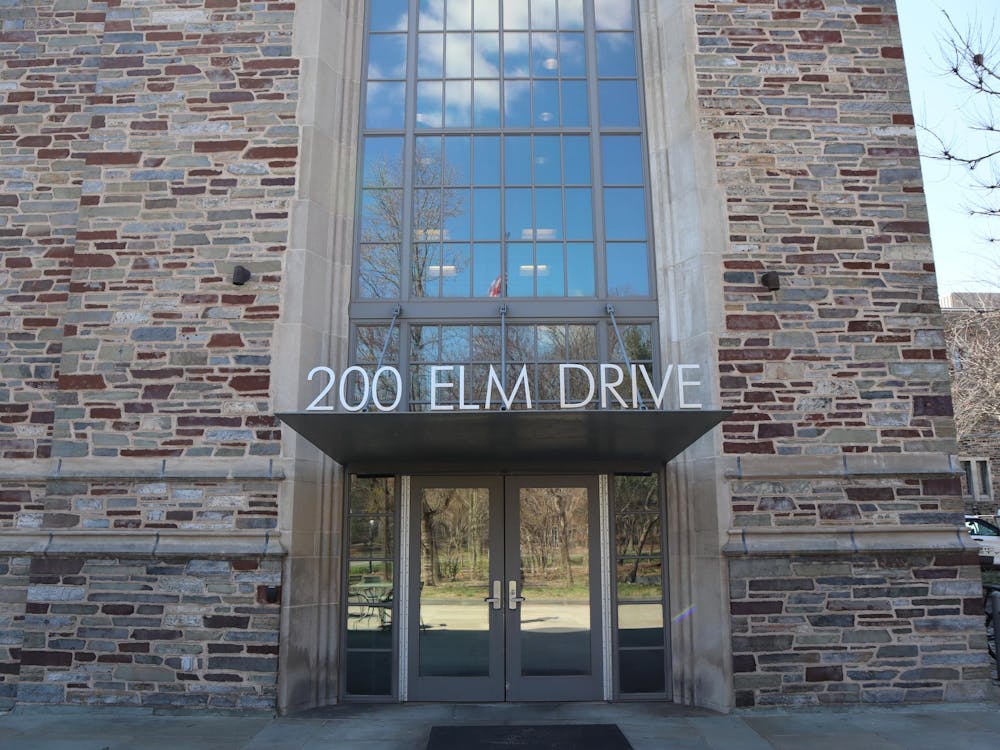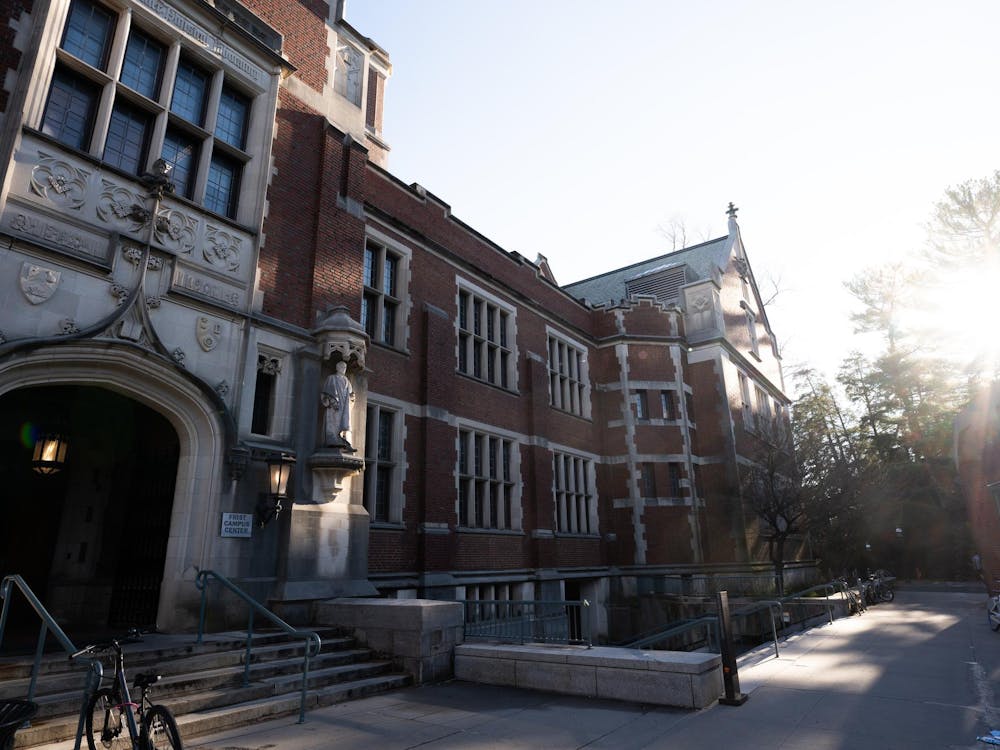Sandalwood incense sticks and holy books line shelves along the wall. A carpet decorated with camels and elephants leads to a golden shrine. "Namaste. My soul honors your soul," begins the inscription on the whiteboardto theleft of the doorway.
The University's first Hindu prayer space opened in Green Hall 3-S-10 on Sunday. The room, meant to serve undergraduate and graduate students as well as faculty members, will be available every day.
The space resides in Green Hall because the Hindu Life Program is part of the Office of Religious Life, which the building houses, Coordinator for Hindu Life Vineet Chander explained. He and Princeton Hindu Satsangam co-President Rishika Dewan ’16 said that the administration was very supportive throughout the process of establishing the room.
Princeton Hindu Satsangam, a student group dedicated to Hindu culture and practice, hosted a ceremony Sunday morning to celebrate both the room's unveiling and Ganesh Chaturthi, a Hindu festival honoring the elephant-headed god Ganesha. Over 20 people attended the gathering, which included mantra chanting, prayers and food symbolizing an offering to God.
Dean of Religious Life and the Chapel Alison Boden declined to comment.
Dewan noted that while the University is a great place to be Hindu, PHS board members had learned of dissatisfaction among some students through casual conversation.
"A lot of them said, 'You know, we have little temples in our rooms, or sometimes when we need to worship, we'll kind of go to our rooms and look for that quiet space,'" Dewan said. "We thought, 'Why not have a space for everyone on campus to create that environment where they feel safe, where they can reflect, worship, meditate and just use it however they want to use it?'"
In response to these concerns, Chander and Dewan led the initiative to establish a Hindu prayer space. PHS circulated surveys in March gauging student interest in having a Hindu prayer space. Meanwhile, Chander said he worked with his colleagues to determine the location for a pilot program, noting that the existence of a Muslim prayer room on campus encouraged them to explore the possibility of something analogous for the Hindu community.
To make the space accessible to as many people as possible, the decorations will remain open to what people want, Dewan said. The initial setup includes a small temple with a likeness of the goddess of education, which would be fitting for the University as an educational institution. Books and musical instruments are on the sides of the room, and she hopes to introduce areas to sit and read, she added.
"We have a very diverse community on campus, and we want to make sure that no one feels alienated in any way. We want it to be as welcoming as possible," Dewan noted.

Chander said he and other initiative leaders thought it was important to open the space as soon as possible, then let things develop organically, so there is no finalized schedule for activities yet.
"What I can say is we certainly plan to make the space available on a daily basis, both formally for more formal structured worship or guided meditation, but also informally for students to be able to be in the space for their own private devotionals or meditation, or just to take a moment to refocus and regroup and catch their breath, so to speak," he said.
Chander added that those involved with Hindu life are also exploring weekly, monthly and holiday-based programming as potential options. PHS board members could lead several events throughout each week, Dewan said.
The project is being jointly funded by the Office of Religious Life, Hindu Life Program and PHS, Chander explained. He declined to release a dollar amount, citing ongoing budget changes and a policy of keeping funding information among only the parties involved and University administrators.
"I know there are a handful of other campuses that have part-time Hindu life coordinators and Hindu chaplains, and Princeton, as far as I know, is the only one and certainly the first to take the very bold and commendable step of making a Hindu life program a full-time program here," he said. "I see the prayer room as just continuing on that same trajectory of leading the way as far as serving the needs of and engaging with the Hindu community."
In the Committee on Background and Opportunity III Report presented by the Undergraduate Student Government, 1.6 percent of surveyed undergraduates identified as Hindu in 2012. However, Dewan noted that nearly 200 students have attended PHS events and signed up for the organization's email listserv, indicating significant interest in Hinduism at the University.
Vibhaa Sivaraman '17, a PHS board member, said she feels excited to finally have a place on campus that reminds her of home and allows her to connect with God, calm down, and reflect on herself.
Having visited a temple on a weekly basis and read religious books in her house's prayer room every morning before college, Sivaraman said she created a small zone in her room to partially fulfill the incomplete aspect of her life at the University. The area contained objects typically used in worship, like pictures of God and special powder.
However, she noted that her zone always felt uncomfortable and she much prefers having a prayer space dedicated to religious purposes.
"We have very strict demarcations regarding a prayer room versus where we live and where we sleep and those kinds of things, and it's very hard to achieve that demarcation when you're on campus and you have to use your room for both needs," Sivaraman explained.
After so many days praying alone in her dorm, Sivaraman said she looks forward to interacting with people from different cultures in the Hindu prayer room.
"Our backgrounds are very different and we have very different ways of worshipping God and identifying with religion," she explained. "Doing it as a community means that we learn about each other's traditions.”










